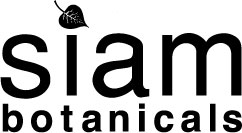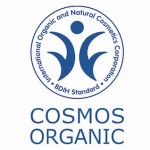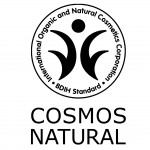The chemical-free myth
When we think about the dangers lurking in our skin care and our food, the focus is usually on the threat posed by artificial chemicals and additives. A climate of fear has built up around chemicals. The word ‘chemical’ is frequently misused by green skin care and organic food aficionados – and the industry itself – to mean something really bad; something poisonous that must be avoided at all costs. We talk about living chemical-free lives, and how evil mainstream cosmetics companies cynically stuff their products full of chemicals. Of course, we all know what is meant by this lazy language, and perhaps it’s nothing but pedantry to pick up on it. We mean artificial ingredients, of course; we mean man-made chemicals. There is not (usually) a deliberate intention to mislead, and most people don’t want a science lesson about how everything is made of chemicals every time they buy their face serum or toner. This point has already been well covered so I don’t need to rehash what has already been said – these excellent articles say it all:
The Myth of Chemical-Free Cosmetics by Lorraine Dallmeier of Herb & Hedgerow
Can We Claim a Skincare Product to be Chemical Free? by Sarah (Sugarpuffish)
Manmade or natural, tasty or toxic, they’re all chemicals… The Guardian science blog
Natural v man-made chemicals
At Siam Botanicals, we’re all in favour of using natural ingredients. 100% natural skin care is what we are all about. But just because something is man-made, it doesn’t make it inherently bad. And just because something is natural, it doesn’t mean you can consume it or slather it onto your skin in as high a dose as you please. It’s just not that simple. It can’t ever be assumed that because something is 100% natural, it is 100% safe. Would you eat lightly steamed poison ivy, for example, or a fricassee of unverified wild mushrooms? Would you choose a body lotion whose active ingredient was arsenic or Clostridium botulinum? They’re all natural, after all.
Take a look at this useful infographic by Sense About Science, which tackles some of the misconceptions we have about chemicals:
To take one example from this infographic, amygdalin is a dangerous toxic chemical that can produce hydrogen cyanide when metabolised. It is found in apple pips and apricot kernels (among other fruit and veg). Aaaagh! Apples contain a toxic ingredient! Therefore, apples are poisonous! We must stop eating apples or we’re all going to die!
But wait a minute. Unless you’re planning to consume a cupful of apple seeds or 20-odd apricot pits in one sitting (and I don’t mean swallow whole, I mean chew extremely thoroughly), you don’t need to worry about the toxic effects; the body is more than able to detoxify cyanide in small doses.
‘The dose makes the poison’
For me, the key sentence in the infographic is this:
‘Chemical toxicity is a sliding scale, not black and white – and whether a chemical is naturally occurring or man-made tells us nothing about its toxicity.’
The truth is that almost everything has the potential to be toxic – even water and oxygen. Both natural and artificial chemicals can be dangerous; and by that logic, both can also be safe. Pretty much anything, if consumed in the wrong concentration or if put into contact with the wrong part of the body, can prove damaging to your health. Aside from the all-important concentration of the ingredient, there are other factors to take into consideration – your skin colour, your age, where you live, the part of the body to which the product is being applied (because absorption rates can differ substantially) to name a few.
You’re right, of course, to care about what you’re putting in and on your body. It’s the very reason why we decided to make our own skin care products. But remember the sliding scale. We don’t all react in the same way to individual ingredients, whether natural or not. Nor do we all have the same boundaries – what is an acceptable ingredient to some is blacklisted by others.
Our advice? There’s no right and wrong. Decide where your own boundaries lie and find a company you trust, whose ethics and ingredients reflect your personal choices.
Do you have a list of ingredients you try to avoid, or do you choose your skin care products based on other criteria? Where do your personal boundaries lie? Let us know in the comments below!



 If we, the natural skin care companies of this world, are trying to establish consumers’ trust by being honest and transparent about our ingredients, we need to make sure – to the best of our knowledge – that we are not perpetuating myths or half-truths that are just as misleading, in their own way, as those peddled by mainstream companies. We should concentrate on the many benefits of our own products rather than denigrating our competitors’; otherwise we risk sounding like hysterical evangelists.
If we, the natural skin care companies of this world, are trying to establish consumers’ trust by being honest and transparent about our ingredients, we need to make sure – to the best of our knowledge – that we are not perpetuating myths or half-truths that are just as misleading, in their own way, as those peddled by mainstream companies. We should concentrate on the many benefits of our own products rather than denigrating our competitors’; otherwise we risk sounding like hysterical evangelists.

2 Comments